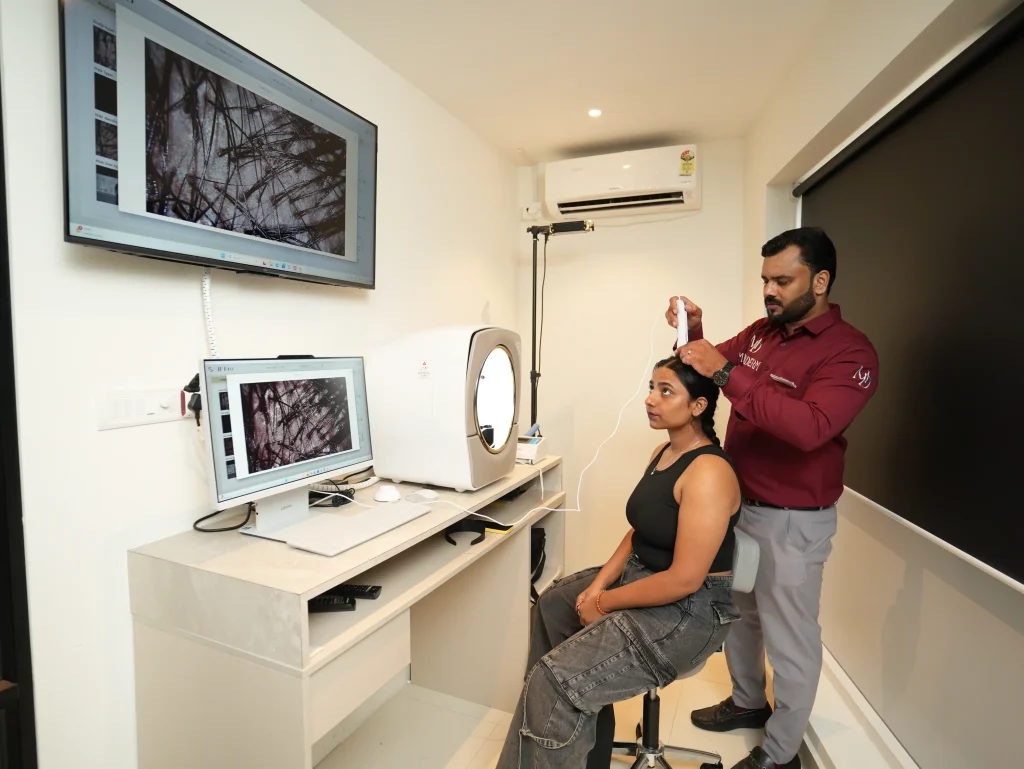Female Pattern Hair Loss
MetaDerm offers the best hair loss treatment in Chennai. We have a high success rate in restoring hair growth for female pattern hair loss, using medical therapy.
Female pattern hair loss is a progressive hereditary condition usually affecting women after they reach menopause. Also known as androgenetic alopecia, it is the most common cause of hair loss in women. Early diagnosis and timely management by a certified trichologist can help both reduce hair loss and stimulate regrowth, as well.

Key Highlights:
- Female pattern hair loss is also known as androgenic alopecia
- It is a hereditary and progressive condition.
- Affects women after menopause
- Treatment can slow down hair loss and stimulate regrowth if started at the first sign of hair loss.
Our results speak for themselves






Female Pattern Hair Loss At A Glance
- Best outcomes: 6 to 9 months
- Procedure Duration: 20 mins
- Duration of results: years
- Back to work: Immediately
- Recovery: immediate
- Anaesthetic: variable
- Your specialist: Dermatologist
- How much: ₹(Consultation required)
Frequently Asked Questions
Applying minoxidil to the affected areas may cause dryness, itching, redness, scaling, and unwanted hair growth.
Applying it to the unaffected areas can stimulate facial hair growth, cause dizziness, or oedema.
Female pattern hair loss does not present any obvious symptoms on the scalp. Detailed examination of the scalp and diagnostic blood tests can aid in accurate diagnosis.
To diagnose female pattern hair loss, MetaDerm dermatologists will:
- Take the family history of hair loss.
- Consider the history and pattern of hair thinning and shedding.
- Perform clinical examination.
- Take blood and hormone tests to check levels of thyroid, androgens, iron, and other components that can influence hair growth.
- Check for acne or irregular menstruation, which may indicate elevated androgen levels.
It is natural to lose 50 – 100 hairs a day. However, female pattern hair loss is more severe and requires early intervention for best results.
Women may not become completely bald like me, but the hair loss is progressive. The symptoms are very similar to those of chronic telogen effluvium, but the management and treatment are different.

